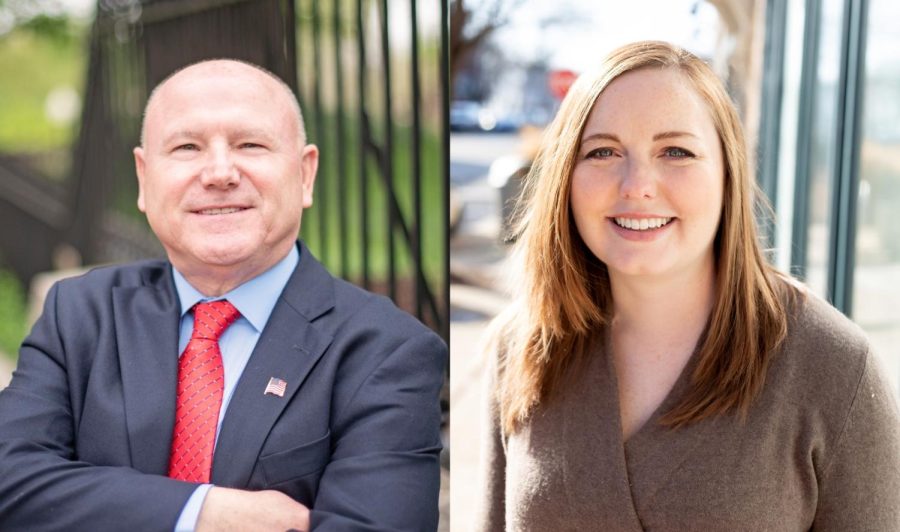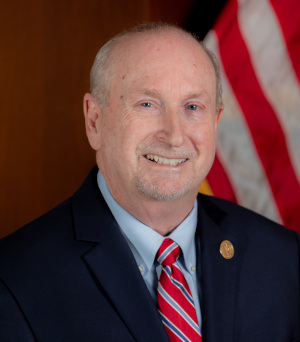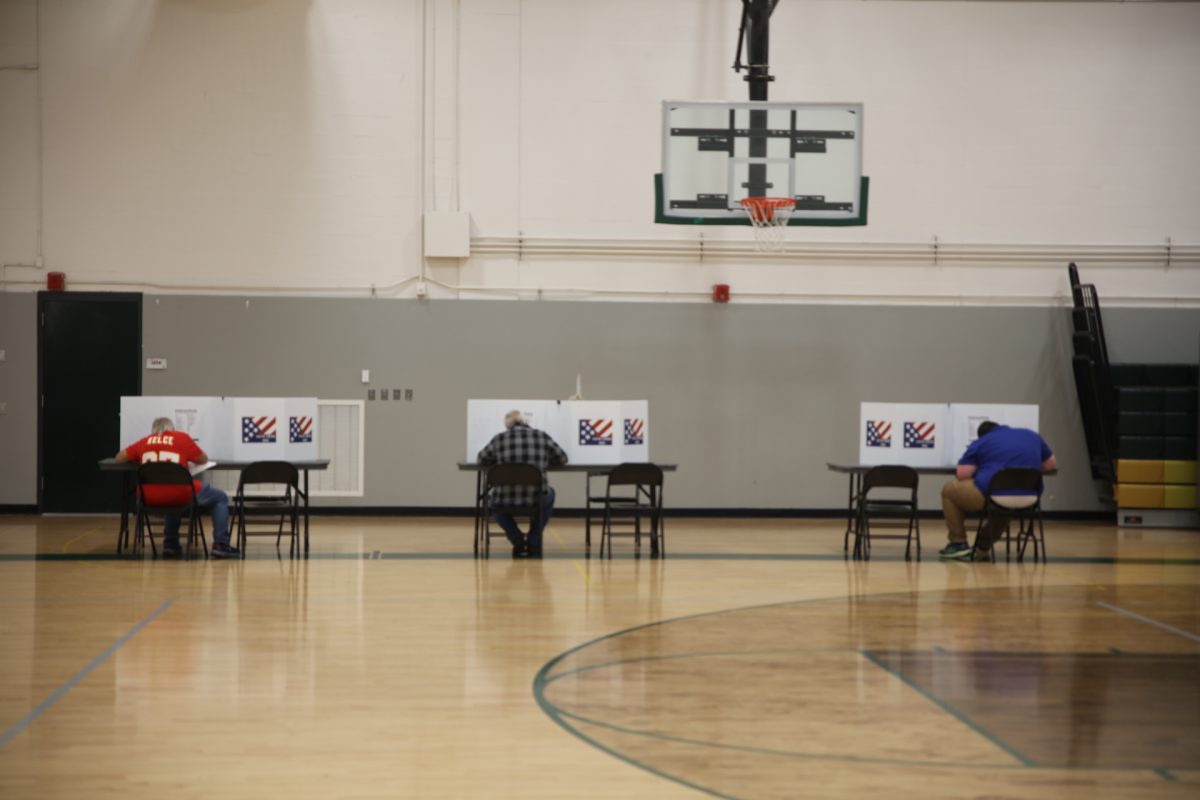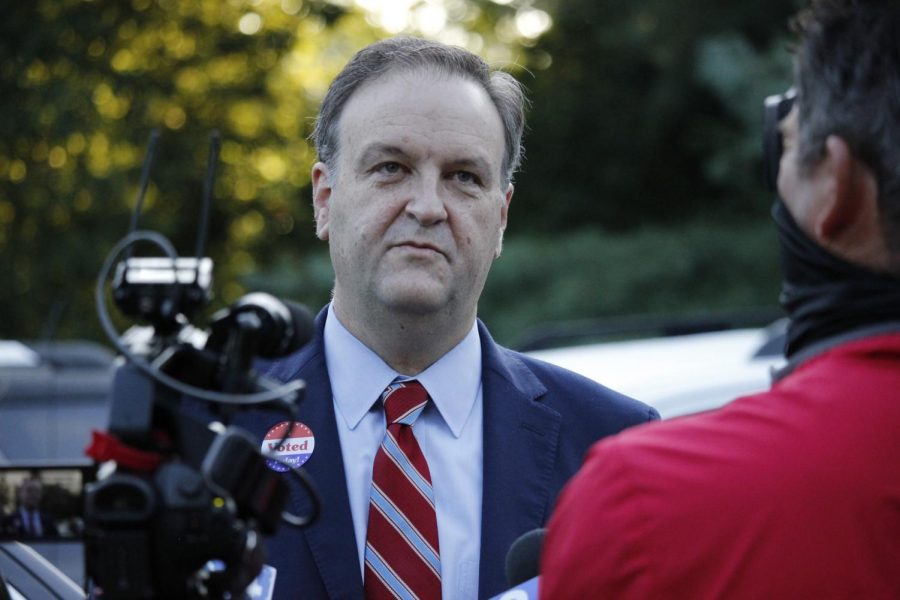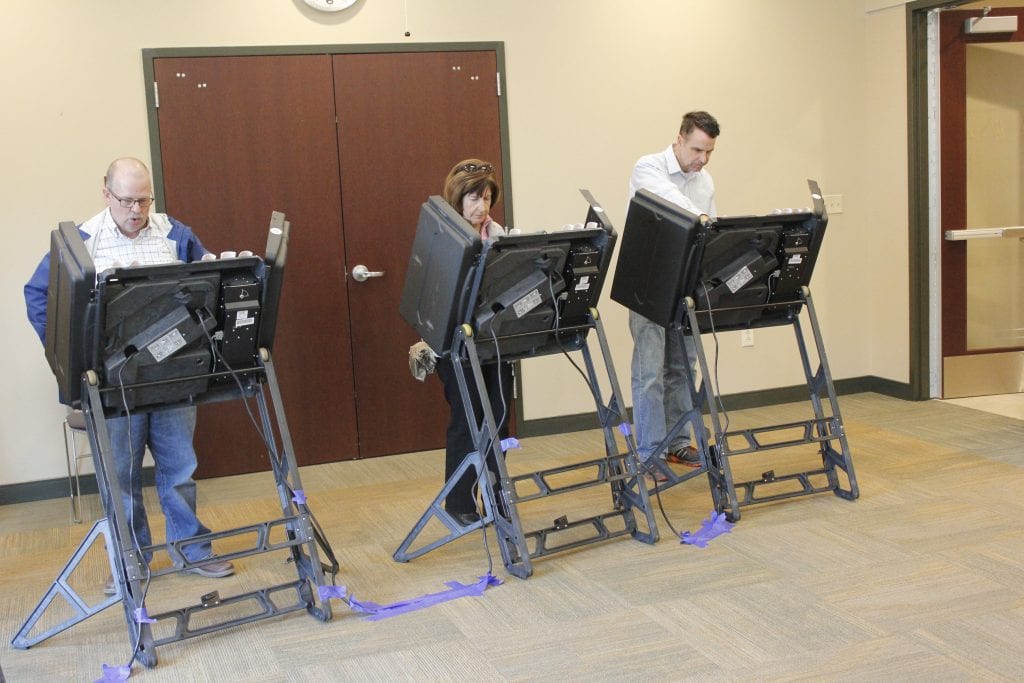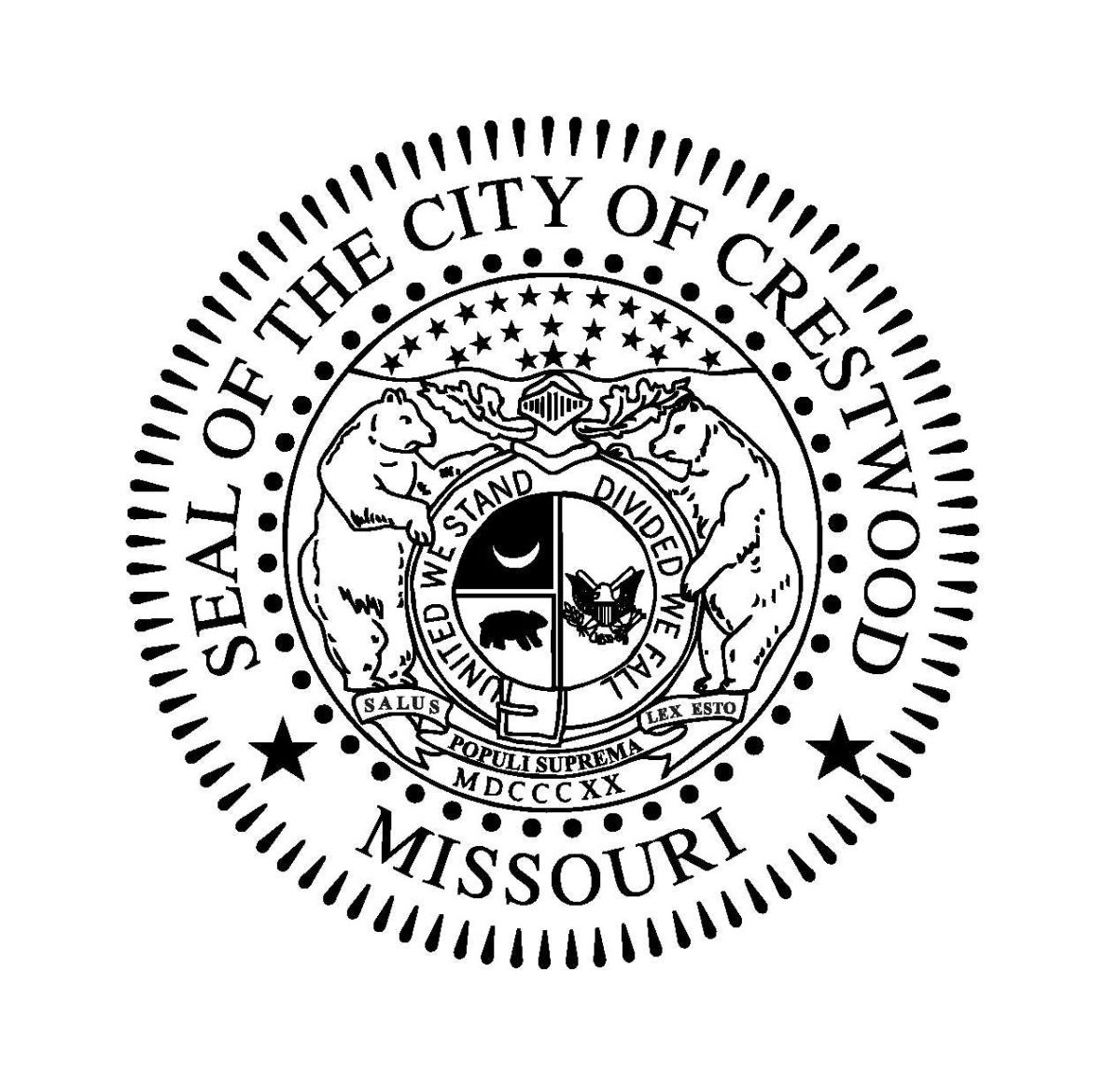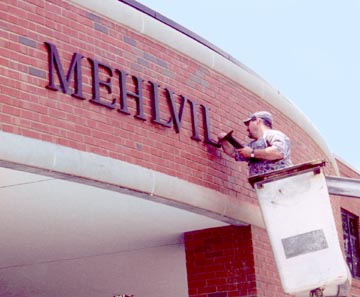Rep. Bridget Walsh Moore, D-Affton, is facing a challenge by political newcomer Kenneth Abram to represent the 93rd Missouri House District. The district represents Lemay and parts of Affton. The election is Tuesday, Nov. 8.
Abram, 62, is a senior manager at Boeing. He studied at Fontbonne and Webster universities and he is married to Maria.
When asked why he was running for public office, Abram said, “(A) desire to make a difference in Missouri.”
Walsh Moore, 34, is a customs brokerage agent. She is married to Gregg Moore. She earned her undergraduate degree from Bradley University in international studies. She was first elected to the seat in 2020.
“To make sure that working families in Missouri are represented and protect the voice of the people,” Walsh Moore said on why she was seeking reelection.
The candidates gave the following responses to The Call’s questionnaire:
(Editor’s note: The following questions and answers appeared in the Oct. 20 print edition of The Call. They have been edited to fit in print.)
What issue do you consider the single most important issue in this race and why?
Abram: “Supporting and funding the police, fighting crime, protecting the public and keeping our community safe.”
Walsh Moore: “To combat extremism. The Republican supermajority has consistently undermined the will of the voters and pushed their agenda through while undermining the democratic process.”
Other issues you perceive in your race and your position on each:
Abram: “Supporting new business development and improving the technical skills of people entering the workforce, especially skilled trades.”
Walsh Moore: “Public schools and their teachers are under attack, we need to fully fund our schools and pay teachers a livable wage. Missouri ranks the lowest in starting teachers’ pay and well below the national average. The initiative petition process is a vital tool of democracy as citizens can put their issues on the ballot without legislative interference. It is one of the most patriotic and American institutions and should be protected as such.”
What do you perceive to be the 93rd District’s greatest challenges? How will you address these challenges?
Abram: “I have outlined my platform with core conservative principles: pro-business, pro-labor, pro-life and pro gun. I also back the blue and oppose illegal immigration. On education, I believe parents are best fit for determining their child’s education path and I oppose critical race theory being taught in our schools.”
Walsh Moore: “The 93rd District has a wonderful community, strong schools, and fair cost of living. What it lacks is enterprise; in order to entice more businesses to the area we need to improve roads, clean up problem properties, and advertise the convenience of the area both to the city and the Mississippi River.”
What do you perceive to be the state’s greatest challenges over the next decade?
Abram did not answer.
Walsh Moore: “Missouri needs to start paying its bills. We have underfunded roads, schools, Medicare, Medicaid, and children’s division for far too long. Fiscal responsibility does not mean allowing infrastructure to crumble. We need to encourage new business by ensuring companies that their employees are safe and well cared for in the state by allowing them to make their own medical decisions and pass the Missouri Nondiscrimination Act.”
How will you advocate for the needs of your district in the legislature?
Abram: “I’m confident running for state representative is the best way I can make positive change for St. Louis County, as well as Missouri.”
Walsh Moore: “I have worked across the aisle, taking meetings with other legislators to find common ground to ensure the 93rd is well represented. I advocate for us with the Budget Committee and representatives with similar districts to the 93rd.”
What is your position on abortion?
Abram: “My position is pro-life and I have full endorsement.”
Walsh Moore: “I believe a woman is capable of making her own medical choices for her body. This is personal for me as a woman of child-bearing age; it scares me that I could be forced to carry a stillborn child until my body is septic. Had this law been in place in 2014 when I was in chemotherapy for osteosarcoma, I would have been denied the life-saving drug methotrexate. The extreme measures Missouri has taken on abortion is dangerous for its citizens.”
What is your position on the death penalty?
Abram: “No comment.”
Walsh Moore: “The U.S. is the only developed country that still participates in this outdated practice, and it is time we join the rest of the modern world by abolishing it.”
What is your position on tax-increment financing? Are changes needed to this law?
Abram did not answer.
Walsh Moore: “TIF, in which future taxes from a redeveloped property are waived for a time to help pay for the redevelopment, was intended to encourage investment in distressed areas, but too often is used to subsidize projects that probably would be built anyway. Statutory changes giving more representation to school districts and others entities most affected by the loss of revenue from a TIF on TIF boards have helped limit some of excesses, but ending TIF abuse will require substantially tightening the legal definition of ‘blight.’ Blight must be redefined in statute so TIF is targeted for its original purposes of incentivizing development in areas of the greatest need.”
Would you support placing a constitutional amendment before voters that, if approved, would repeal the supermajority requirement for school-district bond issues?
Abram: “No.”
Walsh Moore: “When dealing with public funds with long-term effects on an area, a supermajority should be required.”
Are changes needed to the state’s foundation formula for funding education?
Abram: “Yes.”
Walsh Moore: “Yes, the foundation formula should be increased to provide all basic costs of education to school districts, instead of being reduced as in recent years. It should also be a requirement that the state budget fully fund the schools each year to avoid current issues.”
Are changes needed to the law allowing Missouri citizens to carry concealed weapons? If so, why? If not, why not?
Abram: “No, I fully support the Second Amendment.”
Walsh Moore: “The arguments for common sense gun laws are seen in the daily headlines. Background checks, waiting periods, and closing the loophole for perpetrators of domestic violence are a start.”
Are changes needed to the state’s current Open Meetings and Records Law? If so, what would you propose?
Abram: “No comment.”
Walsh Moore: “Easy access to public records is a vital component of government accountability, but government officials too often erect barriers to that access. The Missouri Supreme Court tore down one of those barriers last year in Gross v. Parson when it ruled governments have no authority to impose fees for attorney review time when fulfilling document requests. Demanding excessive fees has long been a way for governments to discourage or deny record requests, and the legislature should follow the court’s lead by further ensuring records are made available in a timely manner.”
What do you propose to generate revenue for road and bridge improvements?
Abram: “Fiscal accountability to start by auditing the past expenditures on taxes allocated for roads and bridges. Current budgets are not properly managed and government agencies such as MoDOT need to be better managed.”
Walsh Moore: “Missouri has the money to repair its roads, it simply needs to be properly allocated. The passage of the gas tax in 2020, while unfortunate in its timing, is specifically earmarked for road infrastructure. This ensures that the over-the-road truckers who drive across Missouri as the seventh-largest highway system in the country, pay their fair share to use our roads.”
What will you do to improve Missouri’s economy?
Abram: “Continue to support existing businesses and try to attract new manufacturing jobs by developing a workforce with solid technical skills. Rebuild the manufacturing base that once existed in Missouri.”
Walsh Moore: “Businesses will not invest in Missouri until we can prove that workers are safe here. We need to pass the Missouri Nondiscrimination Act and end extremist actions in schools and medical care.”
Would you support legislation to facilitate a merger of St. Louis County and St. Louis city?
Abram: “No support.”
Walsh Moore: “I have yet to see a good plan that would allow for a county-city merger. It would need to be incremental … I do think the long-term solution for the area is to combine city and county but all parties need to feel represented and the execution … thoughtful.”
What process do you favor for redistricting? What do you think of the state’s current redistricting process?
Abram: “I do not support the redistricting process.”
Walsh Moore: “An unbiased third party should assist in redistricting, the current map is gerrymandered and should represent the geography and population of the state.”
Should police departments be defunded?
Abram: “No.”
Walsh Moore: “Defunded is a misnomer, reorganized is a better description. I come from a police family and respect law enforcement but their hands are often tied in serious mental health and societal issues. I support having community resources including mental health professionals and social workers available to assist in such calls. For example, once police have removed immediate danger, social workers should be dispatched to the scene to assist in cases of domestic violence. These departments would need to be fully funded and supported as a branch of public safety.”



